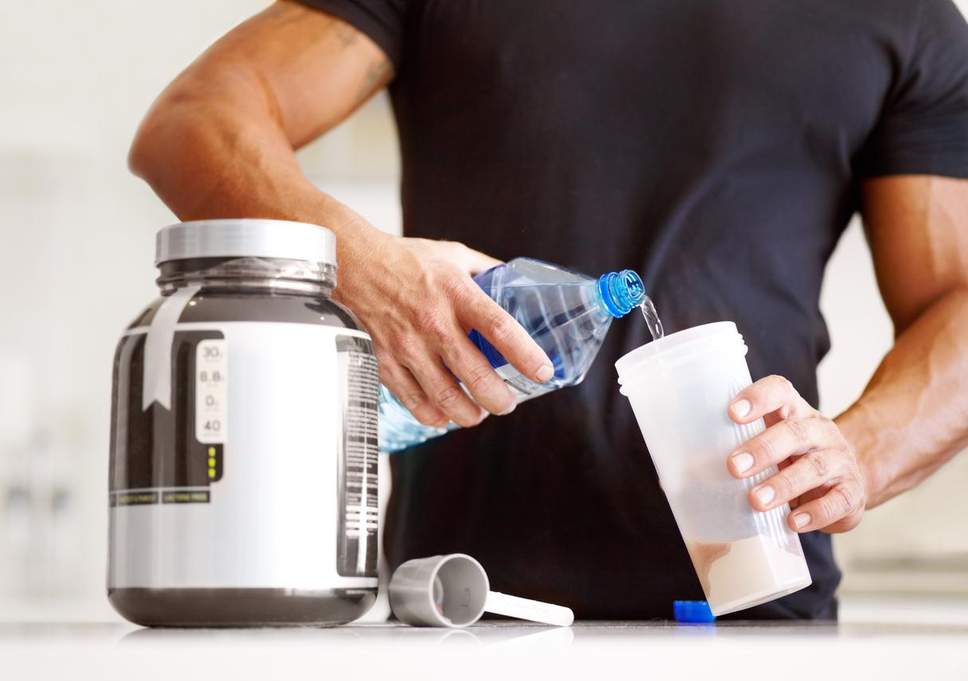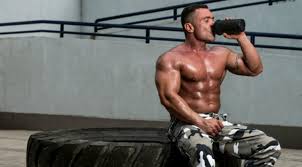Once the reserve of bodybuilders and weightlifting fanatics, protein is now an essential part of the average gym-goer’s arsenal.
We know that to build and repair muscle, consuming enough protein is crucial, be that through protein powders, meat, dairy or plant-based sources.
But with the macronutrient’s transition to the mainstream, has the importance of protein been overstated?
There are a lot of myths flying around about protein so we asked personal trainer, nutrition expert and STAXX Bar ambassador Mark Grice to demystify the world of protein.
Five protein myths – true or false:
1. Protein is best eaten straight after a workout
We’ve all seen gym bros and gals rushing to glug down a protein shake straight after finishing in the weights room in order to get those all important gains, but is doing so really the be all and end all?
Actually, no. “Ideally it is best to eat protein regularly and evenly throughout the day to keep those hunger pangs at bay,” Grice explains. “Having a source of protein during and immediately after a workout is beneficial as it boosts protein synthesis and helps to limit muscle breakdown which essentially means the body recovers faster, meaning fewer aches and pains in the days after training.”
You’ll reap the benefits from eating protein throughout the day including first thing in the morning and the evening.
2. Protein helps keep you fuller for longer
This is true. As with fat, protein increases satiety which stops you getting hungry again so soon.
“If you’re trying to lose fat, this becomes much more important as a lot of the time you are going to expect to feel hungry when in a calorie deficit, however choosing the right protein sources and an adequate amount will help reduce those negative effects,” Grice advises.
3. Protein is just for bodybuilders
You may think that if you’re not actively trying to build muscle you don’t need to eat much protein, but this is wrong.
“Whilst protein does promote muscle mass, it plays a crucial role when exercising due to its ability to support muscle recovery – as well as repairing pretty much everything else in your body,” Grice says.
Protein works directly to repair the muscles after exercise has caused minor tears. “Without sufficient protein intake, your body won’t be getting the requirements it needs to optimally repair the body therefore progress can be hindered as the muscles won’t be getting the right nutrition needed to develop and strengthen, possibly only enough to repair back to the original state,
“So, combined with the right exercise programme, protein plays a crucial role in staying lean and toning up!”
4. Protein boosts the immune system
This is a less well known but true fact, Grice says: “Low immunity is something a lot of people suffer from and often, it can come down to them having an insufficient protein intake.”
5. The body can only digest around 30g of protein at one time
It’s often heard that protein-rich meals are a waste of time because the body can only digest 20-30g at a time but Grice says this claim is based on a study that isn’t entirely reliable.
“Actually, the human body determines the absorption rate of its nutrients depending on many factors,” he explains. “If someone was to have a large meal with 50g protein, then the body would know to slow down digestion in order to absorb all the nutrients.”
Grice recommends you eat 1g of protein per pound of body weight as a starting point: “Generally, if someone was either looking to increase muscle or decrease fat then I would increase their protein intake to just over 1.1g per pound they weigh.”
 musclesroom musclesroom is a designed website persons interested in fitness and supplements
musclesroom musclesroom is a designed website persons interested in fitness and supplements


